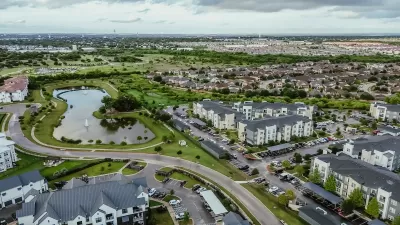Nuisance laws in Ohio cities endanger and discriminate against the victims of abuse, domestic violence, and the mentally ill.

Nuisance laws levy fines against properties that are the sites of multiple calls to 911. The rationale behind these laws is that, if criminals are regularly breaking laws on the same property, property owners should have a monetary disincentive for allowing the problems to continue. The ACLU writes "…alleged nuisance conduct (a category that can include assault, harassment, stalking, disorderly conduct, and many other kinds of behavior)." These fines can be levied whether the person living at the property is the criminal or the victim.
The result is that victims of abuse, assault or stalking can be fined for reporting abuse. These crimes, many of which already go unreported, become even harder to report when the victim fears a fine or that the authorities will contact their landlord.
Another problem for renters, is access to due process, "Fifty percent of the nuisance letters reviewed in the study were issued for renters. Those letters, most times, however, are sent to the property owner or landlord, giving renters no avenue to contest the findings, even when the issue at hand was in no way criminal," Vince Grzegorek writes for Cleveland Scene. This was exactly the case when a woman living in Lakewood Ohio was fined for being assaulted by a visitor in her home, who had broken her nose and concussed her.
That case is by no means an anomaly. In the cities of Bedford, Lakewood, Euclid and Parma “Domestic violence accounted for between 21 and 56% of the nuisance letters in the study — but it also includes people who have called 911 for mental health reasons, including reporting suicidal family members, or drug addiction," Grzegorek reports.

Alabama: Trump Terminates Settlements for Black Communities Harmed By Raw Sewage
Trump deemed the landmark civil rights agreement “illegal DEI and environmental justice policy.”

Planetizen Federal Action Tracker
A weekly monitor of how Trump’s orders and actions are impacting planners and planning in America.

The 120 Year Old Tiny Home Villages That Sheltered San Francisco’s Earthquake Refugees
More than a century ago, San Francisco mobilized to house thousands of residents displaced by the 1906 earthquake. Could their strategy offer a model for the present?

Opinion: California’s SB 79 Would Improve Housing Affordability and Transit Access
A proposed bill would legalize transit-oriented development statewide.

Record Temperatures Prompt Push for Environmental Justice Bills
Nevada legislators are proposing laws that would mandate heat mitigation measures to protect residents from the impacts of extreme heat.

Downtown Pittsburgh Set to Gain 1,300 New Housing Units
Pittsburgh’s office buildings, many of which date back to the early 20th century, are prime candidates for conversion to housing.
Urban Design for Planners 1: Software Tools
This six-course series explores essential urban design concepts using open source software and equips planners with the tools they need to participate fully in the urban design process.
Planning for Universal Design
Learn the tools for implementing Universal Design in planning regulations.
Clanton & Associates, Inc.
Jessamine County Fiscal Court
Institute for Housing and Urban Development Studies (IHS)
City of Grandview
Harvard GSD Executive Education
Toledo-Lucas County Plan Commissions
Salt Lake City
NYU Wagner Graduate School of Public Service





























